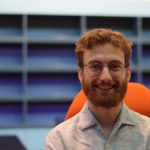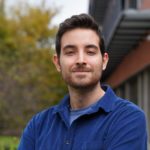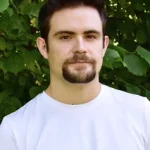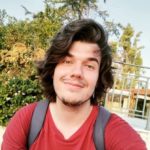PYSQT is the PhD and Young Scientists in Quantum Technologies Network (PYSQT), an initiative aimed at promoting online and in-person activities where early stage scientists, such as PhD students and young postdocs, can meet and discuss about their work.
PYSQT organizes monthly online seminars, where young scientists can present their work in a friendly environment, and where invited senior researchers give broad reviews on different topics on Quantum Science and Technology.
If you want to present your work in a PYSQT seminar, please fill our resistration and proposals form. For any further question, or if you want to engage the organizing committee of the network, you can contact us through Twitter.
Latest Events
- Online seminar #19: Photon antibuching measurement using CdSe/ZnS quantum dots as single-emittersLidia Lozano Martín (ICCUB) Is it possible to develop an efficient solid-state emitter of single and entangled photons suitable for space to ground communications among other quantum applications? Present single-photon and entangled-photons emitters exhibit important challenges, limiting their use in quantum applications like secure communication based on quantum key distribution (QKD), quantum metrology…
- Online seminar #18: Topological phases and entanglement at the boundary of an expanding universeCarlos Fulgado (IFT) One of the most striking phenomena within the realm of Quantum Field Theory in Curved Spacetimes is the creation of particles as a consequence of the expansion of the universe. We study this effect for the case of Dirac fermions and propose a cold-atom gravitational analogue to implement this effect…
- Online seminar #17: The device-independent scenario: quantum information processing based on Bell theoremAntonio Acín (ICFO) Bell’s theorem proves the existence of quantum correlations, often known as Bell nonlocal, that cannot be described by classical theories, in which measurement outcomes are predetermined. In recent years, Bell nonlocal correlations have also acquired the status of information resource, as they are crucial for the construction of quantum information…
- Online seminar #16: Maximal intrinsic randomness of a quantum stateFionnuala Curran (ICFO) One of the most counterintuitive aspects of quantum theory is its claim that there is intrinsic randomness in the physical world. Arising from the phenomenon of superposition, this intrinsic or private randomness is inaccessible to any eavesdropper, a fact that is exploited in the design of quantum random number generators.…
- Online seminar #15: Quasiparticle focusing of Yu-Shiba-Rusinov states in gapped superconductorsMateo Uldemonlins (Université Paris-Saclay, CNRS) A magnetic impurity on a conventional superconductor is one of the most simple pair-breaking defects that induces in-gap Yu-Shiba-Rusinov (YSR) bound states. Predicted soon after the publication of the BCS theory for superconductivity, they now enjoy a renewed wave of interest thanks to the advancements in atomic functionalization…
- Online seminar #14: Magnetism in the 2D limitDorye L. Esteras (ICMol) The exfoliation of graphene down to the monolayer limit opened a new field of science based on infinitely thin materials. Encouraged by these findings, several efforts have been made in order to bring magnetism into the 2-dimensional (2D) limit. Despite the predictions of Mermin-Wagner theorem, these systems have magnetic…
- Online seminar #13: Quantum impurity problems: from quantum optics to condensed matter physicsMiguel Bello (MPQ) Setups of quantum emitters coupled to structured baths have gained more and more attention in recent years, as they constitute a versatile platform where one can test and explore unconventional quantum optics, or even use them for some quantum information processing or quantum simulation. From a broader point of view,…
- Online seminar #12: From NISQ to Quantum Chaos: The Stochastic Operator VarianceOnline seminar #12:Pablo Martínez-Azcona (University of Luxemburg) The study of chaotic behavior in the quantum realm is now at an exciting crossroads, connecting in a unique way quantum information, high energy physics, statistical mechanics and even pure math. We will begin this seminar with a broad introduction to the field of Quantum Chaos, giving particular…
- Online seminar #11: QML for optimization via variational algorithms & coordinate transformationsPablo Bermejo (DIPC-Multiverse Computing) We are currently experiencing the era of NISQ (Noise Intermediate Scale Quantum) devices. This means that there is still an uncertain near-term future for fields such as quantum computing, which completely relies on quantum hardware that is not yet capable of delivering the required performance to achieve game-changer applications.…
- Online Seminar #10: Variational waveguide-QED quantum simulatorsCristián Tabares (CSIC-IFF) Quantum computers and simulators are expected to provide new ways to study the properties ofcomplex quantum circuits. Since they are still prone to errors in the calculations, Variational Quantum Algorithms (VQAs) have emerged as a possible practical way to exploit current state-of-the-art quantum devices. These algorithms propose using a classical…










